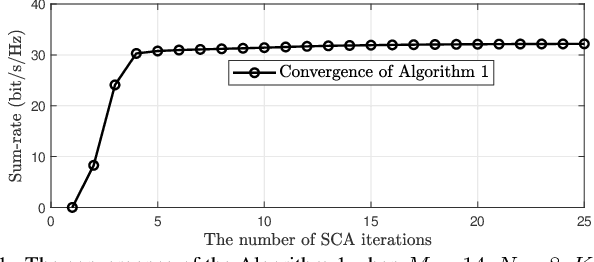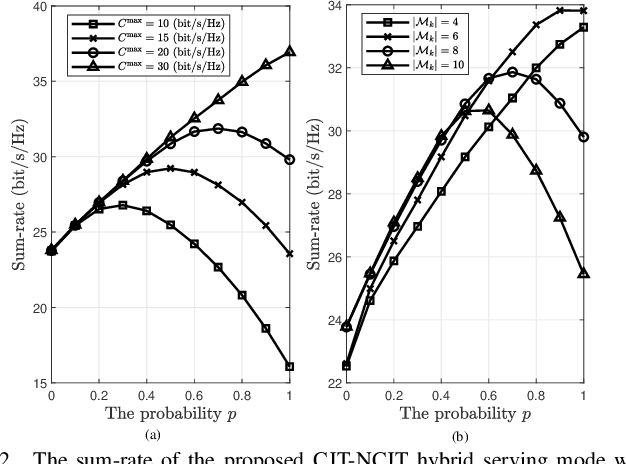Power Control and Random Serving Mode Allocation for CJT-NCJT Hybrid Mode Enabled Cell-Free Massive MIMO With Limited Fronthauls
Paper and Code
Sep 03, 2024

With a great potential of improving the service fairness and quality for user equipments (UEs), cell-free massive multiple-input multiple-output (mMIMO) has been regarded as an emerging candidate for 6G network architectures. Under ideal assumptions, the coherent joint transmission (CJT) serving mode has been considered as an optimal option for cell-free mMIMO systems, since it can achieve coherent cooperation gain among the access points. However, when considering the limited fronthaul constraint in practice, the non-coherent joint transmission (NCJT) serving mode is likely to outperform CJT, since the former requires much lower fronthaul resources. In other words, the performance excellence and worseness of single serving mode (CJT or NCJT) depends on the fronthaul capacity, and any single transmission mode cannot perfectly adapt the capacity limited fronthaul. To explore the performance potential of the cell-free mMIMO system with limited fronthauls by harnessing the merits of CJT and NCJT, we propose a CJT-NCJT hybrid serving mode framework, in which UEs are allocated to operate on CJT or NCJT serving mode. To improve the sum-rate of the system with low complexity, we first propose a probability-based random serving mode allocation scheme. With a given serving mode, a successive convex approximation-based power allocation algorithm is proposed to maximize the system's sum-rate. Simulation results demonstrate the superiority of the proposed scheme.
 Add to Chrome
Add to Chrome Add to Firefox
Add to Firefox Add to Edge
Add to Edge